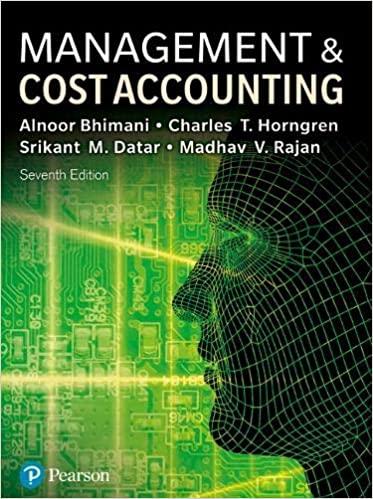Question
This workshop gives a chance to practice deductive reasoning by creating a sound argument on your topic. This is not a research paper. It is
This workshop gives a chance to practice deductive reasoning by creating a sound argument on your topic. This is not a research paper. It is a workshop on how to create sound arguments generally. This workshop teaches to fill in premises needed to make an argument valid, while also striving to keep the premises true.
. I will use this thesis statement: ( Does the use of Social Media tend to improve or harm a business? )
For an example of how to complete this paper.
Step 1: State a thesis statement on your topic.
- This thesis statement does not have to end up being your final position on the subject, but for this workshop, it will serve as the position you will be defending. Your thesis statement is the conclusion of your argument.
- Example: If my topic is the moral acceptability of capital punishment, my thesis could be that capital punishment is not morally acceptable.
Step 2: Present your main reason or reasons in favor of your thesis.
- These reasons are the premises of your argument. State your argument in standard form.
- Example: If my thesis is that capital punishment is not morally acceptable, and my reason is that it sometimes kills innocent human beings, then my argument would be the following:
- Premise 1: Capital punishment sometimes kills innocent human beings.
- Conclusion: Capital punishment is not morally acceptable.
Step 3: State the new premise (or premises) that would be needed in order to make this argument valid.
- This new premise provides what is needed to link (in a valid way) the first premise(s) to the stated conclusion.
- In the above example, the new premise needed to make the argument valid would be the following:
- Premise 2: It is not morally acceptable to do anything that sometimes kills innocent human beings.
- The new premise connects the first premise to the conclusion in a way that makes the argument logically valid.
Step 4: Discuss whether the new premise is true (in your view) and why.
- Does it have any counter examples? If it is not true (in your view), then how could you modify it so that it is true but still supports the conclusion? If it is true (in your view), how might you respond to a likely objection to it?
- In the example above, the new premise may not be true. A counterexample could bewar. Wars typically kill at least some innocent human beings, but that does not make all of them morally unacceptable.
- To figure out how to modify the premise, one can ask the following: What is the difference between good wars and capital punishment? Perhaps it is that good wars are necessary to prevent greater overall harm.
- So, one might change the premise to, "It is not morally acceptable to do anything that sometimes kills innocent human beings, unless it is necessary to prevent greater overall harm." This new version of the premise shows what is wrong with capital punishment without also entailing that war is always wrong.
Step 5: State the new version of the argument in standard form, adding any other premises needed to complete the reasoning (meaning to make it valid).
- The new argument becomes the following:
- Premise 1: Capital punishment sometimes kills innocent human beings.
- Premise 2: It is not morally acceptable to do anything that sometimes kills innocent human beings unless it is necessary to prevent greater overall harm.
- Premise 3: Capital punishment is not necessary to prevent greater overall harm.
- Conclusion: Capital punishment is not morally acceptable.
Step 6: Discuss whether the new argument is deductively valid and whether all of its premises are true.
- If your argument meets both of these requirements (namely that it is valid and all premises are true), then you have an apparently sound argument; If not, then go back to the steps above and repeat until you have a sound argument and revise Step 5 until it meets both requirements. (so that what you post under Step 5 above is your final, sound version).
Step 7: Once you have an (apparently) sound argument, present an objection to it.
- Imagine for a moment that you are a smart person with the opposite perspective on this issue. What would be your best objection to the argument that you just gave? It can be an objection to the truth of one of the premises or to the validity of the reasoning, or it can be a counter argument intended to override your argument. In any case, express here what you take that best objection to be.
The Creating a Sound Argument Workshop paper, Should be 1 to 2 pages in length.
Step by Step Solution
There are 3 Steps involved in it
Step: 1

Get Instant Access to Expert-Tailored Solutions
See step-by-step solutions with expert insights and AI powered tools for academic success
Step: 2

Step: 3

Ace Your Homework with AI
Get the answers you need in no time with our AI-driven, step-by-step assistance
Get Started


